Walking in a CloudLast week, I walked through a cloud, surrounded by a veil of water droplets that hushed sound and hid the landscape–a dense fog.
Fog like this appears “if air is cooled enough by its proximity to the ground or water surface for its moisture to condense into droplets." The humidity must be at or very near 100% which means that the air is full of water. Certainly, those were the conditions that morning, a warm night and warming morning, the ground covered with sloppy-wet snow. And this was a true fog, by definition having visibility of less than ¼ mile. In truth, I couldn't see more than 5 feet in any direction, not the front yard or the street, not the trees in the small forest behind the house. Of course, I went out into it. In spite of its horror-movie quality, the fog didn’t seem frightening. More intriguing. Everything softened and dripping. When I was far enough from the house that it was only a shadow, I stopped to listen. Red-winged blackbirds, those harbingers of spring, called back and forth across the hidden fields and killdeer, too. Everywhere the sounds of water; dripping, trickling, seeping, Alive. As I walked, the area immediately surrounding me appeared clear as if I were walking in a sort of fogless bubble. I paused often and turned in a circle, reveling in the sense of enclosure. It was as if I were wrapped in the lightest freshest comforter, for me an important image of God’s love. The fog was equally thick in the forest and in the field, though once among the trees I felt less alone. The trees stood beside me in the fog, their bark beaded with water. Where it wasn’t covered by snow, the ground seeped. The smell was delicious. At one point, I stood at the edge of the woods and watched a long narrow band of denser fog move up the hill just beyond the trees. I tried to enter the flow, but as soon as I stepped into it, this cloud within a cloud became invisible, just like the fog I had been walking within. I could sense its presence by the dampness of the air against my skin, but I could only see the fog from a distance. That morning was a lived experience of how the spirit surrounds us always but is usually no more visible to us than water to a fish. In the words of Emily Dickinson: “Tell all the truth but tell it slant -- Success in Circuit lies Too bright for our infirm Delight The Truth's superb surprise As Lightning to the Children eased With explanation kind The Truth must dazzle gradually Or every man be blind -- The Truth, that is the presence of God around us, must dazzle gradually. I can’t force my way in, and I must acknowledge my often willful blindness to it. As Paul wrote in 1 Cor 13:12, “For now we see only a reflection as in a mirror; then we shall see face to face. Now I know in part; then I shall know fully, even as I am fully known.” It’s the clear space around me in the fog that is the illusion; it is the mystery beyond that is the truth. Mystery that holds the songs of birds and the laughter of water and the smell of new life—and me. But maybe my curiosity, my attempts, even my unawareness, are okay. God anticipated all of that and loves me still. You too. Remember that–the comforter of God’s love around you even when you can’t, or don’t choose to, see it. Our work is to take that love in. To let it fill us so full, it spills out of us. Because as Paul also wrote, “If I speak in the tongues of men or of angels, but do not have love, I am only a resounding gong or a clanging cymbal. If I have the gift of prophecy and can fathom all mysteries and all knowledge, and if I have a faith that can move mountains, but do not have love, I am nothing. If I give all I possess to the poor and give over my body to hardship that I may boast, but do not have love, I gain nothing.” (1 Cor 13:1-3)
0 Comments
There is a squirrel or squirrels in our attic. I hear them gnawing and scrambling as I try to fall asleep, as I try to settle into meditation. The sound is both unnerving and cozy.
It’s not a surprise, really. We get them almost every year even though we have had our house “bat-proofed.” Twice. Just so you know—bat-proofing doesn’t work particularly well for bats, either. The house is old and full of charming detail—and gaps and openings. It’s drafty and strange and creatures seem to find their way in quite easily. I imagine that this squirrel is the one who has grown sleek and glossy at my bird feeder. I see their plumpness and feel as proud as if I were raising a healthy child. I know some people don’t like squirrels; I like the little wretches. I like their bright eyes and chuffing tails. I like their unselfconscious greed, the dozens and dozens of seeds they bury in my lawn. To be scolded by a squirrel with that raspy call and twitching tail is to feel yourself truly seen. Although both are rodents, my feelings about rats are quite different. Rats also visit my bird feeder (!) and they have become plump and glossy as well. These are Norway rats, aka brown rat, common rat, street rat, sewer rat, wharf rat, Hanover rat, Norwegian rat and Parisian rat. Global rats who live wherever humans live, particularly in urban areas, particularly beneath our wood pile because beneath the driveway runs an abandoned storm sewer which the man from city environmental services calls, “the rat highway.” I struggle to appreciate the presence of the rats because—well, they’re sneaky, right (as if squirrels aren’t) or so we believe. Maybe because squirrels are active during the day; rats at night. Or because rats communicate at frequencies humans can’t hear while squirrels make charming little tsking sounds. Okay, but rats carry disease. This I know. But it turns out that rats are no more likely to carry disease than squirrels, on average, and neither carry rabies. Still, it’s hard to forget the role of rats in the bubonic plague. Rats aren’t filthy, either. They groom themselves constantly, up to one-third of the time they are awake. Final note, almost all lab rats and the so-called fancy rats that people have as pets, were bred from the Norway/brown rat. So when my daughter had a pair of adorable black and white spotted pet rats when she was young-- I suspect that the distinction comes down to tails; the squirrel’s is fluffy and cute, the rat’s—downright ugly. Even the tails of pet rats. At any rate, it seems as if the difference between my reaction to a squirrel in the attic versus a rat under the woodpile comes down to judgment. Prejudice. The human brain is wired to make judgments and this likely served us well in our early days—this will eat us, that we can eat. But nowadays this quality of mind, this unfortunate tendency to determine “good” and “bad” based on very little, too often gets in the way of kinship, of love of neighbor. I judged the rat. Where else do I go awry? What frameworks have I built in my mind that slot people and creatures into categories that I have no business defining? That question bears reflection.  While cleaning out my files recently, I came across a blog post by Omar Safi which had been published on the On Being website. I must have been struck by it at the time, and it struck me again when I reread it. The piece is an appreciation of the Wendell Berry poem Manifesto, the Mad Farmer Liberation Front. (A magical poem.) Safi is moved by the entire poem, but “haunted” by the line “Love someone who does not deserve it." Well. Haunted seems like the appropriate word there, doesn't it? Who is the one who doesn’t deserve it? That politician that I believe is doing great harm. The gazillionaires racing to space. My annoying neighbor. Me? In God’s eyes we are all loved, but sometimes, too often maybe, that seems a little hard to swallow. In this time of strife and stridency, I worry about my inability to do just that. Jesus has some strong words about the matter. “If you love those who love you, what credit is that to you? Even sinners love those who love them.” [Lk 6:32] Yikes. This teaching removes reciprocity from the equation. We are not meant to love in order to get love. Or to be admired, or to make ourselves feel worthy or someone else feel guilty or to establish ourselves as good. Safi suggests that “it is the act of loving” that matters. And I suggest that it is the expectation of reciprocity that gets in the way, both for the person who strives to prove their worth by acts of “loving” service and burns out and for the one caught in scarcity and unwilling to share without a guarantee of return. The Spiritual Exercises of St. Ignatius culminate in the contemplation of God’s love in which we acknowledge that everything we are and do and have is gift and reflect on the limitless nature of God’s love. There is no one among us who deserves that love, it is gift. Perhaps in acknowledging that daily, if not hourly, as we fail and try again, we might be able to follow the poet’s instruction to love someone who does not deserve it. Notes:
Recently, I have been listening to Braiding Sweetgrass: Indigenous Wisdom, Scientific Knowledge and the Teachings of Plants, by Native-American botanist, Robin Wall Kimmerer (RWK). I read this beautiful book years ago and it moved and challenged me. So when I heard that Writers & Books had chosen Braiding Sweetgrass for Rochester Reads this year, I decided to revisit the book. And I highly recommend the recorded version: RWK has such a calm and steady voice it makes the book even more delightful. [If you’re not familiar with Rochester Reads, check out: wab.org/rochester-reads.]
In the book, RWK poses a question that has gripped me; Can non-native Americans become indigenous to place? Can we “enter into the deep reciprocity that renews the world?” Such a thing would require an intimate knowledge of and respect for nature and a new relationship of reciprocity. This sounds very familiar to me. In Ignatian spirituality we spend thirty weeks walking alongside the human Jesus so that we can know Him more intimately, follow Him more closely and love Him more dearly. We seek a reciprocity in which, aware that all of creation is gift, in gratitude we offer all of ourselves to God. We are invited, too, to come to know God more intimately through creation. Nature is God’s ever-unfolding revelation. Consider St. Bonaventure’s words: “Each and every creature reflects a different aspect of the creator.” It seems to follow that the process of spending time with our non-human neighbors--listening, seeing, tending and being tended to--is another practice that leads us closer to God. And deeper awareness of how much God loves all of this creation which they called “good.” RWK doesn’t think that immigrant Americans like us can become indigenous to place. That word is reserved for those whose lineages predate European colonization. But she offers us a path toward naturalization, a way of living that honors this land and all of its inhabitants. That path will require nothing less than metanoia--conversion--from an old way of seeing the world, to a vision that recognizes God in all things. The change won’t be easy: luckily, we have grace to guide us. In a meditation group I attend, the facilitator read that gorgeous poem by Mary Oliver, When I Am Among the Trees, and one line really caught my attention. She writes that the trees give off “such hints of gladness. I would almost say that they save me, and daily." How simple. How beautiful. I would love to manifest this kind of gentle generosity.
However, I am a person who tries, or worse, a person who tries to try. There is something in me that believes we are meant to make a difference. To fix things. To make a better world. I have spent quite a lot of time considering what I am meant to do or regretting what I didn’t do. When I'm not trying, I don't quite know who I am. This well-intentioned striving, accompanied by the guilt and exhaustion that follow from my failure to save the world, have not helped me “give off hints of gladness” and I no longer think it’s because I didn’t accomplish some particular task. I know that I was created to “be light, bringing out the God-colors in the world.” [Matthew 5:14, The Message] so I shouldn’t hide my light under a basket. But I am also becoming aware of the ways in which my search for purpose is the basket. Later in the poem, the trees tell the poet that “it's simple. . .you too have come into the world to do this, to go easy, to be filled with light, and to shine.” Simple? Really? For me, more like the work of a lifetime. Jesus said, “Come to me, all you who are weary and burdened, and I will give you rest. Take my yoke upon you and learn from me, for I am gentle and humble in heart, and you will find rest for your souls. For my yoke is easy and my burden is light.” [Matthew 11:28-30] To me, that sounds like “Go easy.” And summer offers an invitation to play with that idea. How might you go easy through July and August? What will you need to let go off? Perhaps there are “obligations” that aren’t really. Could you set some of those aside? Just for now? How about those big, desolating ideas about what you “should” be doing? Could any of those go? I invite you to join me in holding some of those “have-to’s” and “shoulds” up to God’s clear light to see what they’re made of. I also invite you to consider the healing properties of going easy. We have all been through an unprecedented time of anxiety. As things begin to open up, consider giving yourself permission to slow down, to rest and to simply spend time being with God without accomplishing anything. I suspect therein lies the way toward becoming one who “gives off hints of gladness.” 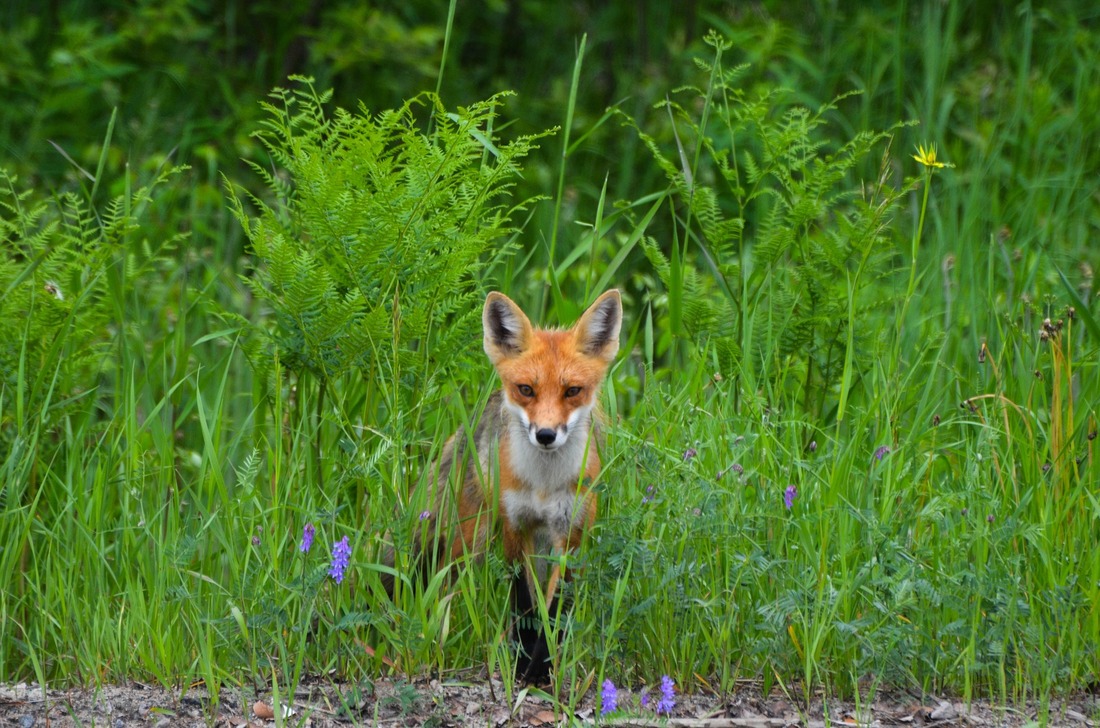 On the way south and east toward Keuka Lake on a sunny spring day, the kind that is like an open door after the long dank winter, I drive with my windows open and the music loud. These country roads wind and roll, through forest and then open out onto a 10-mile view. I drive swiftly, taking care not to cause a line-up behind me. I don’t want to be that woman on the road. On the graveled shoulder of the road, along a stretch that is straight and wide open with fields on one side and a vineyard on the other, I see it. The destroyed body of a young red fox. Red foxes aren’t born red and this one isn’t old enough to have turned; its coat is sandy brown. Their very attentive parents don’t allow them to leave the den until they are a couple of months old, at least. I wonder what happened here. I am ashamed to admit that I didn’t stop. I should have. That little body has haunted me since. The spark of God’s ever-creating, ever-loving grace enlivens all creatures, but for me it is particularly apparent in the red fox. Maybe it is their beautiful, glowing fur. Or the way they leap up to pounce on prey I can’t even see. They are devoted parents and mate for life. There is a playfulness in the red fox that denotes intelligence, even wit. I should have stopped to honor the death of that young fox. The late Barry Lopez, one of my favorite writers, wrote a small book about his response to roadkill. He did not name it a spiritual response, but I do. His ritual was as follows; stop the car and with tenderness, lift the body of the fallen creature and carry it from the roadside, pause to offer words of apology which he calls “ a mark of respect” and a “technique of awareness.” A simple ritual to slow down our hurrying, to connect us to the wonder of God in all things, and to mark the harm done. We have a responsibility in this world to love what God loves; each and every part of creation. To love God in all God’s images; tree, hill, woman, man, red fox. I missed my opportunity so instead I offer this prayer of lamentation. For the life lost. For my part in the hurrying human world. For all the things that damage my relationship with God in and beyond and through creation. O Source of Life, Creator of All Things Listen to the cry of my heart For I know you share my sorrow. How long will we turn from You? Blind to Your presence in the world Blind to gifts You have given, Coiled within our own selfish pursuits. Deliver me from my hurry and my fear, my Beloved They keep me from seeing Your Divinity in the life around me. Reawaken my child’s spirit That I might be struck with wonder Open my eyes to see You in all things. Sweeten my heart so I might love the world as you do. Forgive me, My God, For the ways I have failed to see and to love And bless my tears. That they might help me to live As one with all Your wondrous creation. 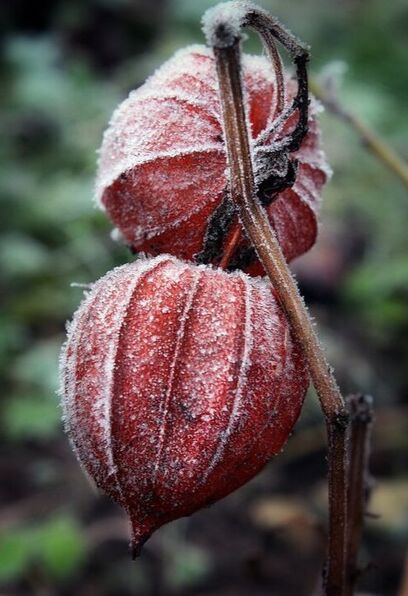 ovember Gratitude Happy November, dear friends and sojourners! As we move toward the end of a year that has been fraught with challenges and turmoil, Holly and I wanted to send a few words out to you. I am Canadian and Holly is American, so we don’t celebrate Thanksgiving at the same time. But anytime we hold gratitude in our hearts and minds I think we do well. When I think about gratitude, one of the images that comes to mind is sitting around a table with friends and family. And as I thought about sharing a meal with others, and how that looks, and what it might mean, my mind went to Jesus. This guy was always eating it seems! At weddings, with friends, outside at impromptu picnics where the only person who thought to bring food was a boy who was willing to share. Whenever Jesus gathered with people to eat, he knew it meant something to sit at table and share a meal. What it meant to break a piece of bread off the loaf and pass it to the person next to you. When Jesus ate with people, food wasn’t the only thing being served. There were generous helpings of forgiveness, acceptance, and healing, too. Shame was not invited to Jesus's table. All those present were equal and all were loved when He was the host who blessed and broke and gave. Because Jesus knew that when you sit at table and make space for gratitude, hearts can change. I wonder how I might welcome others to my table with gratitude in these difficult days that seem wound in barbed wire. What would it be like if I could sit at the table with the wounded and difficult parts of myself? What if I could give wine, give bread, give kindness, to these parts of me? And then, what if I could welcome, with thanks, the other? The one I may need to forgive, the one I disagree with, the one I fear? What if we could sit down to eat together and find Christ in our midst, generously offering us grace and hope, love and thanks, and encouraging us to offer ourselves and each other the same? Perhaps the barbed would begin to untangle. Gratitude. It is what I am practicing because I still don’t have it right. But I will continue to practice, and I invite you to the table with me. ~Deb 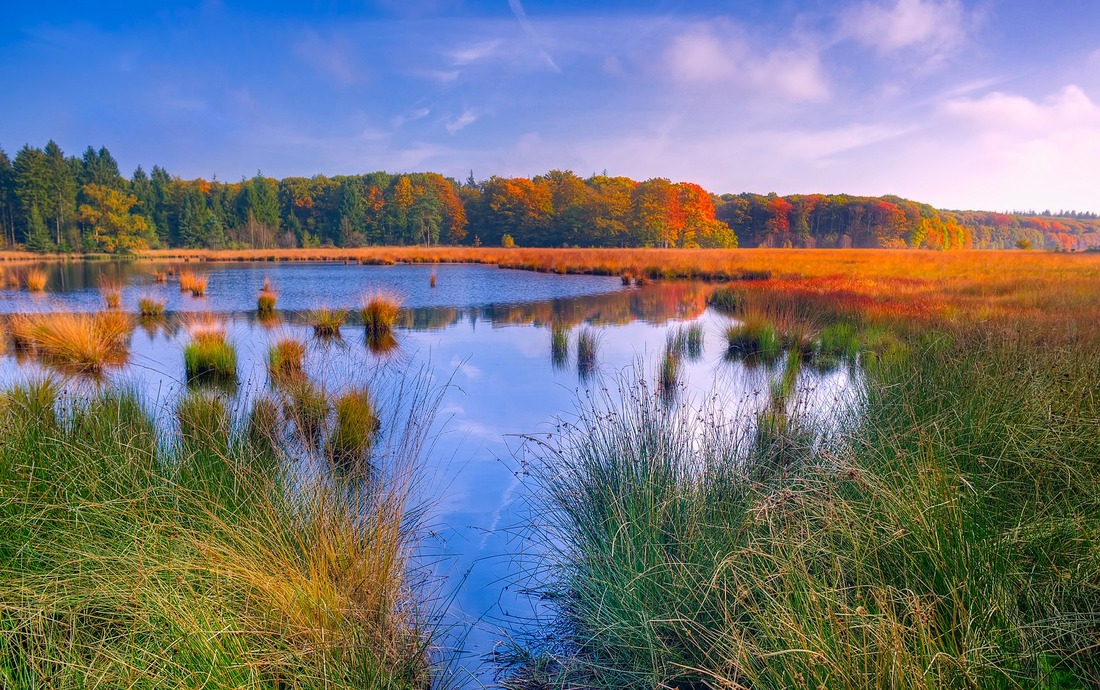 WELCOME TO AUTUMN At his time of year, it is traditional to write about letting go; the falling leaves as metaphor for our lives. But for many of us, 2020 has been the year of letting go—of travel plans and coffee with friends, and in-person celebrations, and church services, and even to loved ones who were taken by this illness. Perhaps we have heard enough about letting go for now. Instead, let’s consider the autumn harvest. My mother had a wicker cornucopia filled with fake fruits and vegetables that she always brought out in September as a reminder of abundance and a call to gratitude. What have you received over these last few months that might nourish your spirit and draw you closer to the Creator? Is there anything to be harvested from this upending of our lives? These “emptier” days have gifted me with space. Because there is less going on, I notice more. A friend’s tone of voice that tells me to stay on the phone a little longer than I had planned. An old dream bubbles to the surface and I pause to consider whether it still resonates, or its time has passed. I realize that it is fear that has kept me from one piece of work and pride that keeps me holding on to another. And each of these realizations is a fruit of the Spirit I would have very likely missed had I been moving at my usual pace. But now I notice, and I have the time and space to reflect-- which has led to some interesting conversations, largely one-sided, in my prayer time. Is my busyness in service to the Spirit or habit? The Spirit or my desire to be admired? The Spirit or a sense that I need to earn God’s love by doing? These are subtle discernments that require space and time and quiet and most of all require that I open myself to what God is saying, rather than what I have already decided is the best way to proceed. I wonder what you have been noticing. What will you harvest this autumn? Holly I live in a small city, in a tree-full neighborhood, true, but more people-centered than natural. I do what I can. Native plants, fresh water supply, lots of shrubs and as many trees as I can fit. And lately, after a rat-infestation-driven hiatus, a birdfeeder. Mostly my visitors are “junk” birds; house sparrows, starlings, pigeons. Occasionally I attract a pair of cardinals or a blue jay. And there is a flicker who comes when I remember to put out suet.
I was buying seed at the local store and noticed that they are offering a course on how to keep these pest species away from your feeder. I don’t want to. Not long ago, I read The Moth Snowstorm, by Michael McCarthy. A beautiful book. In it, there is a long passage about house sparrows. How communal they are. To his ear, their constant chirps are asking, “where are you?” and “who’s still here?” and announcing, “here I am.” Each flock sticks together within a range of about 1 kilometer. That’s just a little more than half a mile so I’m imagining that the chatty little flock in my backyard is the same group that hides in the hedge I pass on my way to work, the same birds I hear when I walk the dog. I find that comfortable. I watch them calling to one another, swooping to the feeder and then back to the pine tree where they shelter, responding to signals I can’t perceive, bathing in the dusty soil beside the driveway, hopping about on the ground, and I see joy. I see community. I see vibrant aliveness shining forth. These dull brown, non-native, noisy upstarts have become delightful to me. They remind me of—me—just another faded, white, middle-class woman. Without the showy plumage of capital A accomplishment, or capital B beauty or capital W wealth. Ordinary and yes, non-native. Invasive, you might even say. And I don’t mean to offend, but this is true for most of you, too. And yet we are beloved. As we are. In all our plain brown wrapping, we are seen, known and beloved. And in that, extraordinary. We move about our home ranges chirping and chatting, maintaining that connection of care and love with those around us. The sun warms us. The trees shelter us. We are fed through the work and kindness of strangers. Is there, in this sense, such a thing as an ordinary life? “Are not two sparrows sold for a penny? Yet not one of them will fall to the ground outside of God’s care.” Matthew 29:10 So I will be welcoming house sparrows, these beloved of God, to my feeder, grateful for the reminder that the divine shines even in the ordinary. Holly |
Details
AuthorHolly Rockwell is a Spiritual Director at Estuary Soul Care and an avid naturalist. Archives
March 2022
Categories |
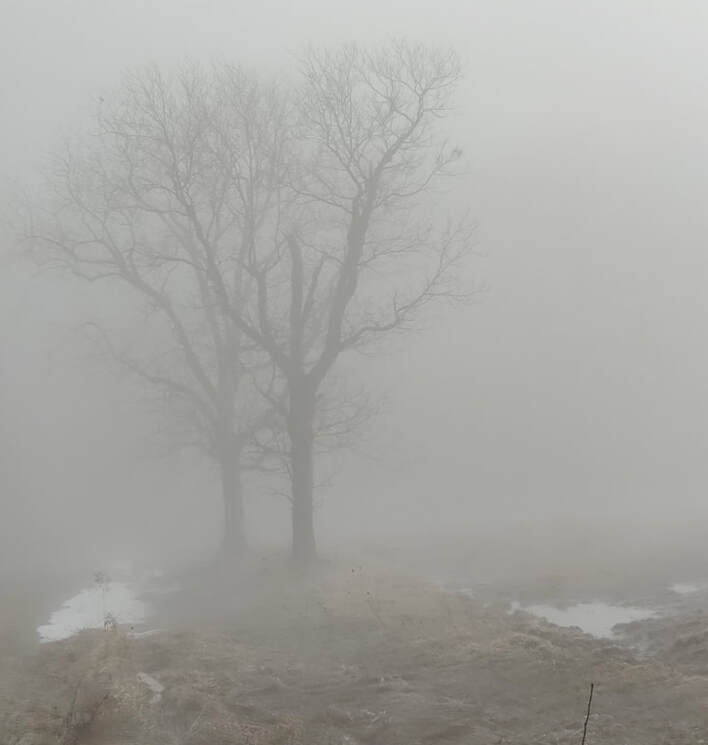
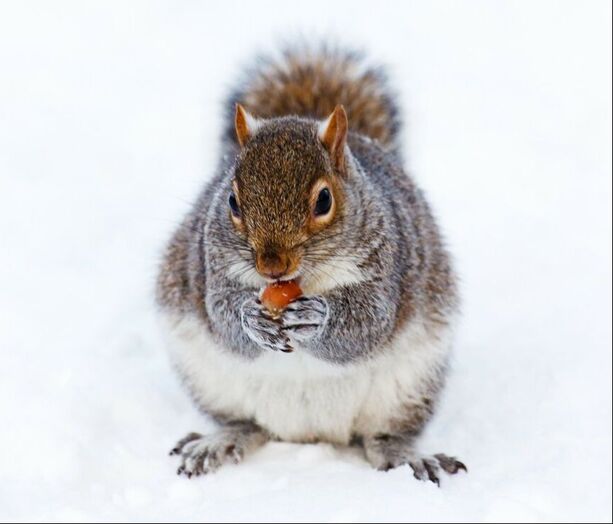
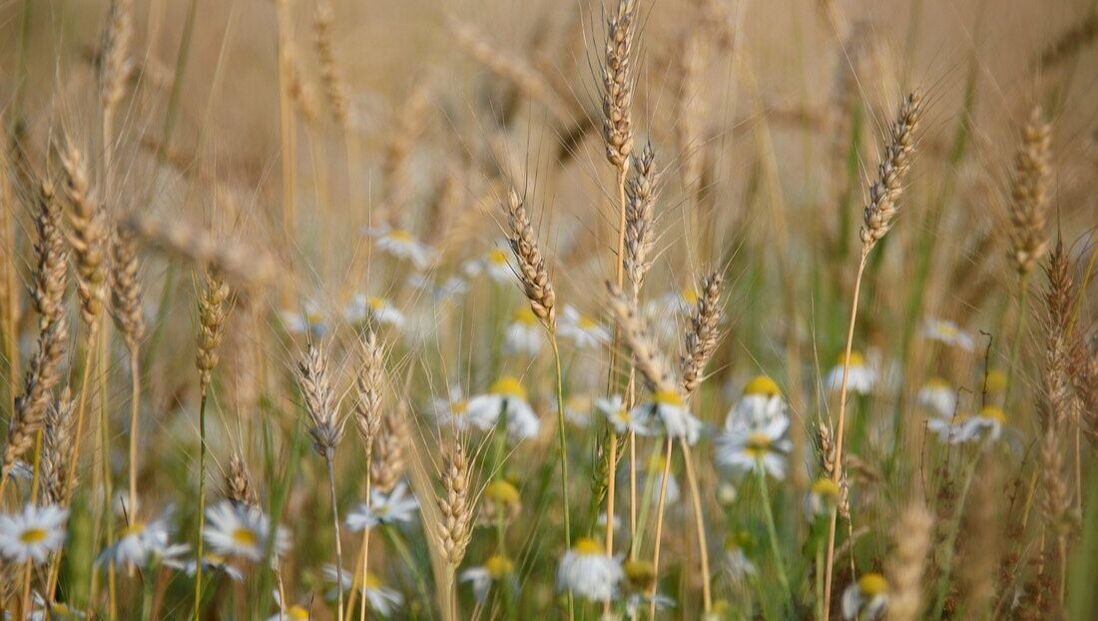

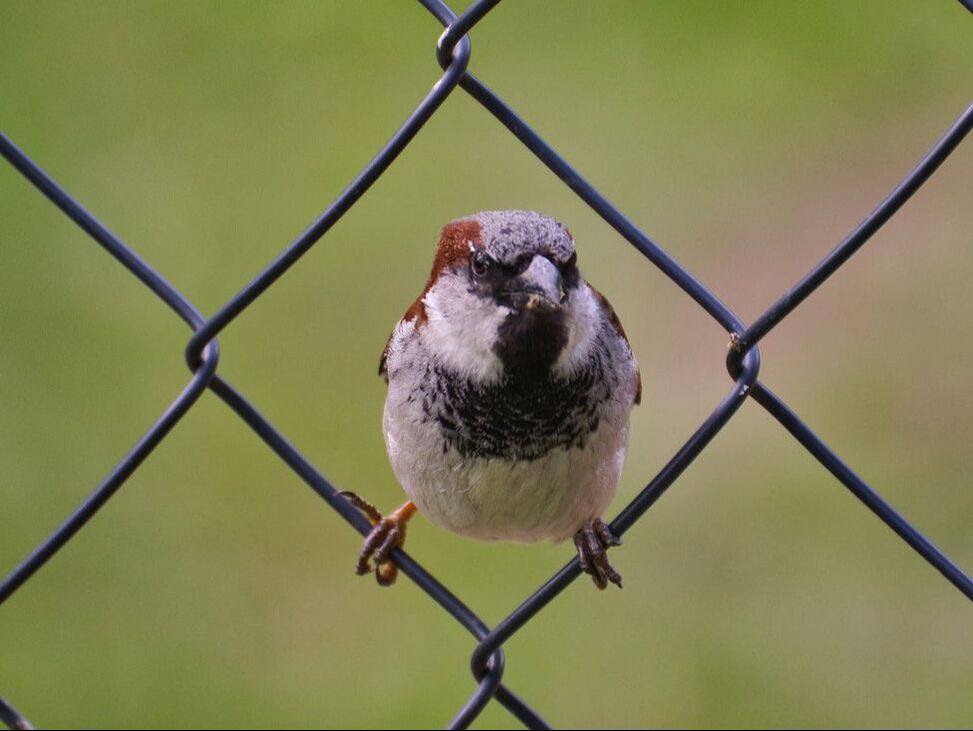
 RSS Feed
RSS Feed